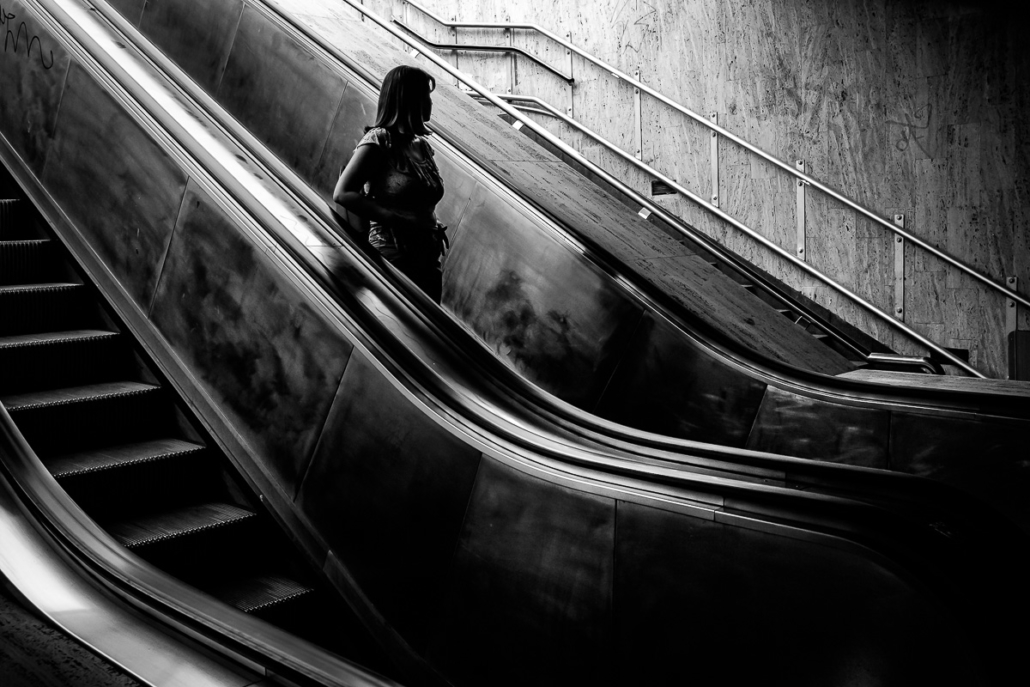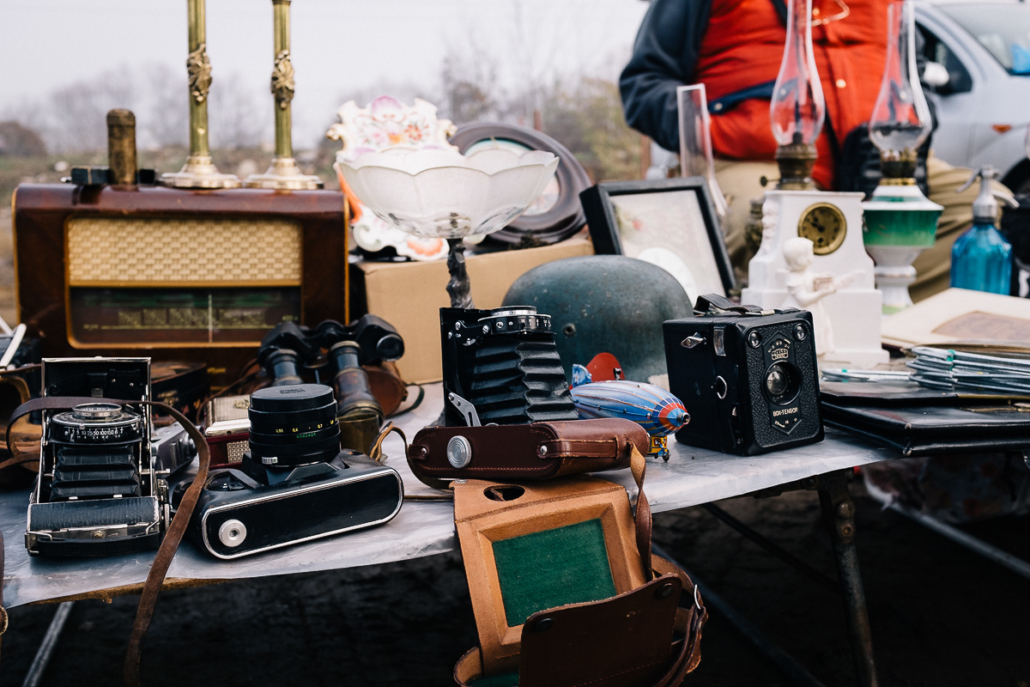At some point in photography, you need to refresh you point of view, try something new, see differently. I’ve tried that by starting to shoot film. I got a Canon AE-1 last Christmas, and shot only half a roll of Ilford HP5 Plus in the first 6 months of the year. I love the mechanical aspect of those old cameras, the fact that you must think twice if the shot is worth it, how to take it, how to expose… It’s less opportunistic, it forces you to push your craft further on. Digital cameras are much more comfortable to use, maybe too comfortable sometimes. I think it’s good to remember how things actually work and not rely on too much automation.
Electric stairs. Bucharest, Romania, 2016. I used there my “shadow measure” of the day. Get a print.
Well, I finished my first roll, enjoyed the result, even if it was not perfect. I then spent the end of the summer and the autumn shooting much more film for some personal photos and projects, trying different kinds of film (Kodak Tri-X 400, Kodak Portra 400…). It’s so fun. And also refreshing to not worry about settings. I usually measure once for the shadows, once for the highlights, and switch between the 2 settings depending on the scene. Either changing the speed or the aperture.
Then came this idea: why not trying to do the same with my digital cameras? Measure once, and keep it this way until the light changes dramatically. Film is much more forgivable than digital, but I have Lightroom, so… 🙂 And that’s what I’m currently doing. For daylight, I set my ISO to 400 (my favourite film speed, to keep it consistent), I measure once for the highlights, once for the shadows, and I’m good to go. I know how many stops there are between the two, with only 1 finger I can change my speed or my aperture. During the night, I crank my ISO to 3200 or even 6400, I measure once for the streets lights, once for the shops’ indoor lights, and I’m good to go. Easy, right?
Sometimes, it’s even easier. I’ve host my recent Oser flea market photo essay with the very same method. It was an overcast day, only 1 measure was needed, I could even forget the dials and focus on the content of my photos. Once again, content is the key!
Why bother? you could ask. My camera’s metering system works great! you could add. And I’d agree 🙂 Here are my findings after a few weeks:
- I am much more focused on my work. I know what my settings are at any time. I’m the one in control.
- Being even more content driver has helped me raise my keepers rate. I actually take less photos, but they are globally more interesting.
- I get a consistent exposure. No more surprises because the metering system was spot instead of evaluative.
- It helps me train to shoot film, I can make mistakes at no cost.
- All of that results in less time spent in front of the computer, which is always a blessing!
The last point is very important to me. For example, the whole flea market set was processed in around 20 minutes, including the photos that are not published here. And the majority of the time was spent to straighten the photos, as they were taken from the hip. The exposure was spot on, +/- 1/3 stop, every time.
Old film cameras shot by a new digital camera used as an older film camera 🙂 I kept a single setting for the whole day. Cluj-Napoca, 2016.
Of course, it doesn’t mean I will never ever use my cameras’ automation. It is sometimes a great help, it would be stupid not to rely on if it actually helps me. But for my kind of photography, I feel that shooting with a modern digital camera like I would shoot film with an older camera helps me raise my level.
So there it is, a little challenge for you, dear reader: try to shoot digital as you’d shoot film with an old camera, for a few days at least:
- Fix your ISO
- Measure your scene, once for the shadows, once for the highlights
- Forget all the other dials
- Enjoy 🙂
And don’t hesitate to share a feedback of your experience!


